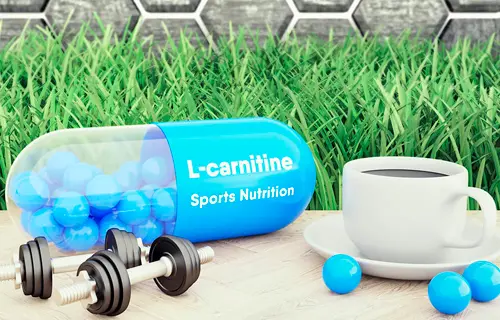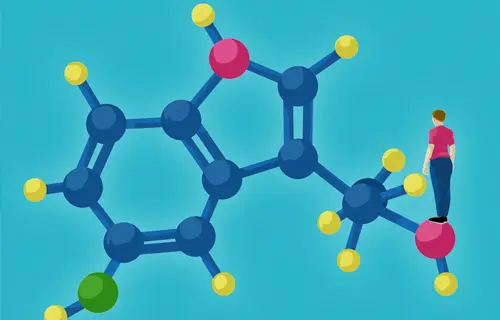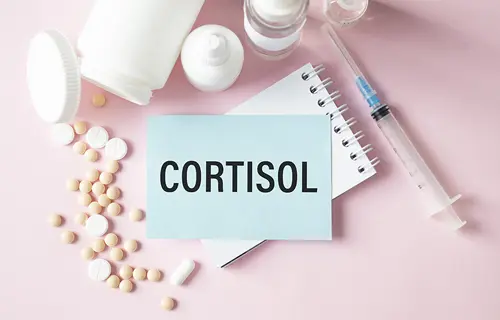CPT2 disease

If you tested your DNA with a personal genomics service like 23andMe, AncestryDNA, FamilyTreeDNA, MyHeritage or another testing company, you can learn more about your risk factors for hundreds of diseases. By clicking the button above ⬆️, you can upload your raw DNA data file and receive a personalized 250-page health report with research links that is the most comprehensive.
A condition affecting the oxidation of long-chain fatty acids, Carnitine palmitoyltransferase II (CPT II) deficiency has three different clinical presentations. These include a lethal neonatal form, a severe infantile hepatocardiomuscular form and a myopathic form that is generally mild in nature and can be apparent from infancy to adulthood.
The inability to utilize certain fats for energy, specifically during fasting periods, is known as Carnitine palmitoyltransferase II (CPT II) deficiency. This condition can manifest in three distinct ways: a fatal neonatal variant, an acute hepatocardiomuscular variation that typically affects infants and severely impairs their motor skills; or the myopathic subtype.
Soon after birth, the deadly neonatal manifestation of CPT II deficiency becomes evident. Symptoms include respiratory failure, seizures, cardiomyopathy (weakened heart muscle), arrhythmia (irregular heartbeat), and liver dysfunction. Individuals affected by this condition also experience hypoglycemia (low blood sugar) with reduced ketones resulting from fat breakdown for energy - known as hypoketotic hypoglycemia. Often times structural abnormalities are present in the brain and kidneys as well. Those afflicted typically survive only a few days to months following diagnosis.possible edit
The hepatocardiomuscular type of CPT II deficiency in infants is characterized by liver, heart and muscle damage with symptoms usually occurring within the first year. The condition often causes recurrent hypoketotic hypoglycemia episodes as well as seizures, enlarged liver (hepatomegaly), irregular heartbeat (arrhythmia) and cardiomyopathy. This form of the disease can be triggered by fasting or illnesses such as viral infections leading to a risk for severe consequences like nervous system damage, coma and sudden death due to potential liver failure if left untreated.
Follow the link of the selected polymorphism to read a brief description of how the selected polymorphism affects Carnitine and see a list of existing studies.
SNP polymorphisms related to the topic Carnitine:
| rs2631367 | OCTN carnitine transporter polymorphism is associated with inflammatory bowel disease, Crohn's disease. |
| rs74315298 | Mutations of the CPT2 gene resulting in fatal neonatal or severe infantile carnitine palmitoyltransferase II deficiency. |
| rs72552726 | Carnitine transporter defect due to a novel mutation in the SLC22A5 gene manifested by peripheral neuropathy. |
| rs2229291 | Carnitine palmitoyltransferase polymorphism is associated with multiple syndromes of acute encephalopathy in various infectious diseases. Genetic risk factor for common acute encephalopathy. |
| rs1799821 | Carnitine palmitoyltransferase polymorphism is associated with multiple syndromes of acute encephalopathy in various infectious diseases. Genetic risk factor for common acute encephalopathy. |
| rs2229738 | Carnitine palmitoyltransferase deficiency is an impairment in the oxidation of long-chain fatty acids. People with this breakdown need a high-carbohydrate, low-fat diet to ensure a steady supply of carbohydrate energy and medium chain length triglycerides. Also, individuals with CPT1A deficiency should have liver enzymes (AST, ALT, alkaline phosphatase) and liver function tests (including PV and ACEI) at clinic visits, even in the absence of symptoms, and during periods of reduced caloric intake and fever. |
| rs28383481 | A breakdown causing primary carnitine deficiency. |
| rs1871748 | |
| rs151003641 | |
| rs370493 | |
| rs1799822 | |
| rs2278907 | |
| rs274567 | |
| rs274551 | |
| rs189174414 | |
| rs3019593 | |
| rs2924689 | |
| rs2924685 | |
| rs3019578 | |
| rs191107774 | |
| rs1017640 | |
| rs7938117 | |
| rs7112615 | |
| rs897047 | |
| rs11568520 | |
About The Author
Li DaliLi Dali, a National Foundation for Outstanding Youth Fund recipient, is a researcher at the School of Life Sciences in East China Normal University. He earned his PhD in genetics from Hunan Normal University in 2007 and conducted collaborative research at Texas A&M University during his doctoral studies. Li Dali and his team have optimized and innovated gene editing technology, leading to the establishment of a world-class system for constructing gene editing disease models.


